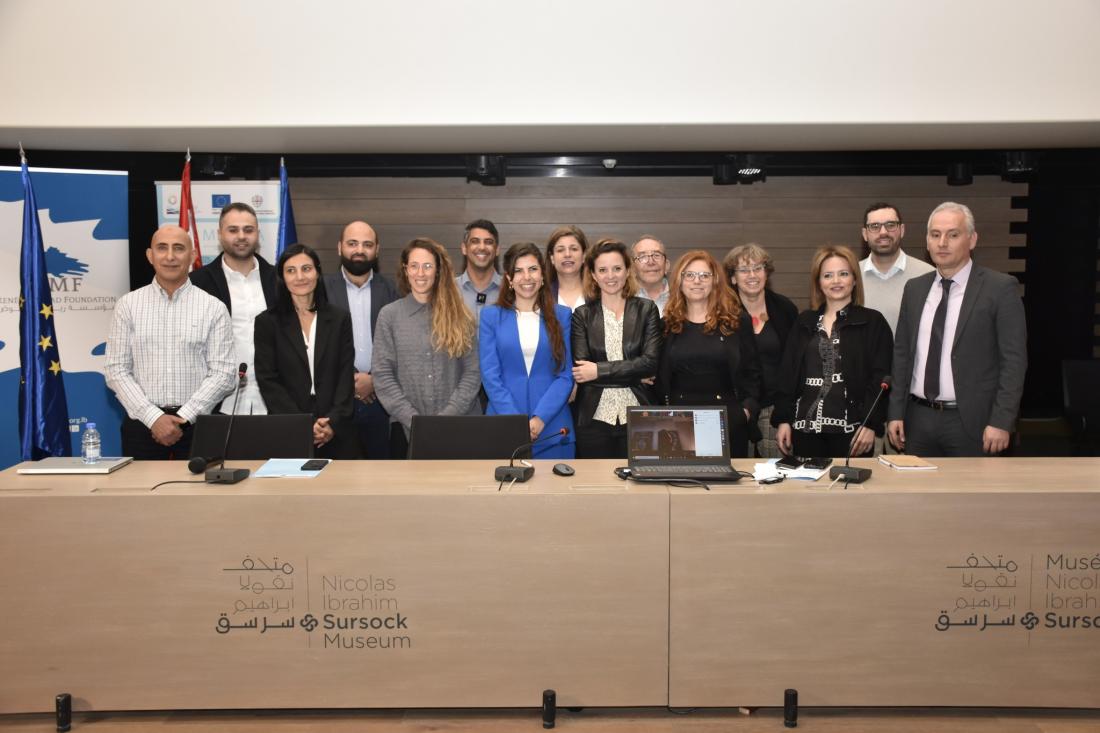MEDUSA project’s final conference

The MEDUSA project, which was developed to promote adventure tourism in the Mediterranean region, has successfully concluded its activities on March 14th 2023, with a closing ceremony and a press conference held at the Sursock Museum. The project, which was funded by the European Union under the Program for Cross-Border Cooperation in the Mediterranean (ENI CBC MED), benefited 25 tourism establishments and trained over 760 people on sustainable destination management and tourism business planning. The project worked on a global market report on adventure tourism in the Mediterranean region, in addition to creating strategic alliances to promote the management of destinations between the public and private sectors in a sustainable manner.

In her speech during the vent, Berta Perez, Director of European Projects at the Barcelona Chamber of Commerce, MEDUSA project’s lead partner, praised the MEDUSA project for promoting tourists to benefit from the various components of adventure tourism in the Mediterranean regions, including physical activities, cultural exchange, and interaction with nature.

The Head of Cooperation at the European Union Delegation to Lebanon, Alessandra Viazier, also mentioned in her speech that enhancing Lebanon's attractiveness as a tourist destination could revive the economy in these difficult times and contribute to improving the lives of vulnerable communities. The project aimed to develop a new form of adventure tourism products based on environmentally sustainable and economic principles that create more sustainable opportunities and new jobs.

The Executive Director of the Rene Moawad Foundation, MEDUSA project’s partner in Lebanon, Representative Michel Moawad, mentioned in his speech that adventure tourism is essential to attract tourists to Lebanon and revive the local economy, especially in lesser-known areas, such as Al-Qaa, Ehden, Daraya, and the Chouf, which benefited from the project.

The ceremony included a presentation by the first Lebanese to climb Mount Everest, Maxime Chaya, about his experience in adventure tourism. There was also an exchange of experiences from some of the beneficiaries of the project, as well as interventions by project managers in different countries.

Prior to and following the ceremony, the final Steering Committee and Advisory Board meetings were organized in the presence of the partners, associated partners and tourism experts to discuss the technical state of the project, the main results achieved, and the future of adventure tourism in the Mediterranean region. The discussions centered on the impact of the project on the tourism industry and the local communities, highlighting the sustainable principles of adventure tourism and its potential to create new opportunities and jobs in lesser-known destinations. The project's beneficiaries shared their experiences and successes, emphasizing the importance of collaborations between the public and private sectors to promote sustainable destination management. The future of the project was also discussed, with partners expressing their commitment to continue promoting adventure tourism in the Mediterranean region and expanding the reach of the Mediterranean Adventures brand.


Overall, the MEDUSA project was a successful initiative that contributed to the development and promotion of adventure tourism in the Mediterranean region. It provided training and support to tourism establishments, created new adventure tourism products, and established strategic alliances between the public and private sectors. The project's sustainable principles and focus on lesser-known destinations made it a valuable contribution to the tourism industry and local communities in the region.









